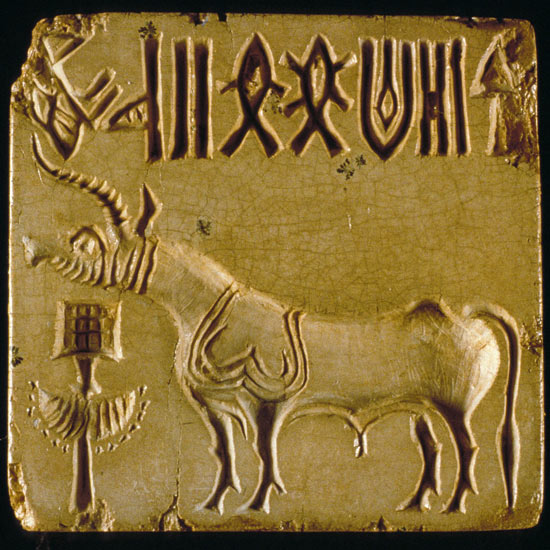Thanks for the link!ManishH wrote:ManishH wrote:3. Study of regularity of sound change in IE language vocabularies indicates that words for 'chariot'/'horse' were not loanwords or wander-woerter (like camera/TV etc are); but intrinsic part of the vocabulary. So the PIE speakers were already domesticating horses and making chariots before the dispersal started.
#3 specially is crucial to correlating with archaeological evidence of horse domestication and chariotry in the Eurasian steppes that indicates a homeland for IE speakers there.
Arjun-ji: Nice to see you lose the invective.Rajeshji,RajeshA wrote: ManishH ji,
Are there any papers out there publicly available which make the case that chariot/horse were not loanwords or more interestingly were NOT Wanderwörter! It would interest me to know based on what criteria, the scholars have come to this conclusion!
This blog has a nice summary ...
http://languagelog.ldc.upenn.edu/nll/?p=994
I've posted briefly in this thread on this subject.
After reading the link, it has become all the more clear that neither áśva nor cakrá really are cross-Indo-European words or that the corresponding PIE words are really *éḱwos or *kʷekʷléh₂/kʷekʷlos!
Vedic, Avestan, Old Persian, Lithuanian, Anatolian may have a common word for Horse, but Germanic, Greek, Italic are really stretching credulity. The Tocharian word may be more for yak than for horse!
Too many sound changes are being demanded!
The chances of wheel being a common Indo-European word are slightly better! In Punjab, one still uses the words 'chakla-belan'! So in India both čákla and čakrá are available. It doesn't make sense that in Proto-Indo-Iranian the word *čáklas, needs to be projected, if the word in Iranian is also supposed to go a similar rhotacism. It would be much more reasonable to postulate that the Indian čákla migrated outside Indian Subcontinent and that within India, the sound was refined into Sanskrit through rhotacism, which was then passed on to the Iranians!
I can imagine that wheel and chariot terminology have a common Indo-European origin, but horse does not. The initial wheel that may have left Indian Subcontinent may or may not have been spoked, would possibly have been attached to a cart and may have been pulled by ass(es)!ManishH wrote:Another thing about wander-woerter is that they tend to make their way during the wanderings into unrelated language families. Eg. Camera etc have made their way into Finno-Ugric, Arabic, Dravidian, Sino language families too. But IE cognates of horse, wheel and chariot vocabulary somehow don't go outside the IE family; not even to the neighbouring Finno-Ugrics.
Perhaps for that reason alone áśva and ass may even be cognates, though even this I doubt!
I don't see why both Indians and Arabs need to have similar words for the same commercial item! The people were not really living next to each other. There were deserts and long distances between! The only connection was the horse traders, and they would have used the local term where ever they were! hasAn in Arabia and áśva in India.ManishH wrote:Another point to consider is that if the OIT claim for Arabian horse import into India was true, the fact that Arabic word for horse ('hasAn') is totally unrelated to IE ek̂wos or cognates in it's daughter languages, totally runs counter to that.
Seen Later
ManishH ji,
I would like to thank you for pointing this out!
According to the Sumerian-Aryan Dictionary by L. Austine Waddell, the word for Horse is indeed 'Aśśa'!
Seems to be a perfect pointer for as a source of dispersion! It seems some proto-Sumerians were indeed the middlemen providing the horses to India. The Sumerian word 'Aśśa' is close to both the Arabic 'hasAn' as well as the Sanskrit áśva! Very asaan indeed!
It seems the hypothetical Central Asian Indo-Aryans (2nd millenium) had nothing to do with providing any horse nomenclature! It is the proto-Sumerians (4th millenium) who gave the word áśva to the Indians!
Or was it the other way round? Didn't somebody say there are similarities between Sumerian and Telegu?
No wonder the Sanskrit word áśva does not have a cognate in other Indo-European languages! Is the Greek 'hippos' supposed to be a cognate of áśva??? Naayyy!


